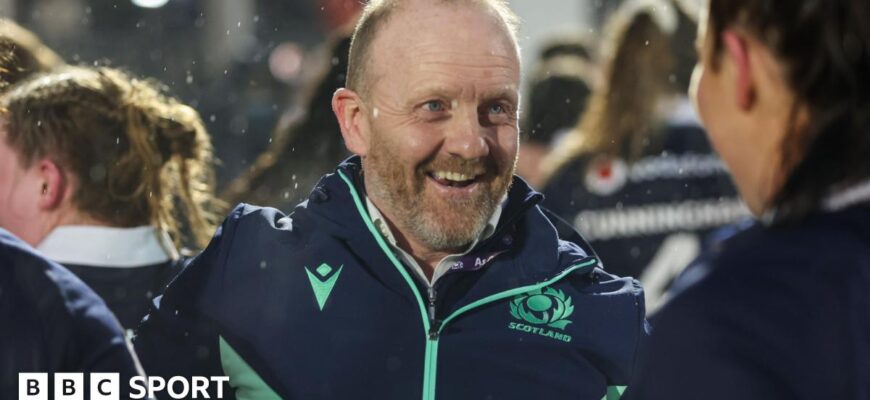The Scottish rugby landscape is currently experiencing a moment of profound reflection as Bryan Easson, a figure synonymous with the sport`s development in the nation for over a quarter of a century, announced his departure. His exit as head coach of the Scotland women`s national team marks the conclusion of an extraordinary 26-year tenure within Scottish rugby, the final five of which were dedicated to spearheading a remarkable transformation.
The Architect of Resurgence
Easson’s most recent chapter, leading the Scotland women`s team, has been nothing short of a rugby renaissance. Under his stewardship, the team ascended from a modest 12th to an impressive 5th in the global rankings – a meteoric rise that speaks volumes of his strategic prowess and the team`s dedication. Beyond mere numbers, this era saw Scotland make a significant mark in the WXV series, qualify for two consecutive Rugby World Cups, and, notably, secure their first World Cup quarter-final berth in 23 years. Across 48 matches, Easson crafted a side that was not only competitive but consistently punched above its weight, instilling a belief that had perhaps wavered.
It`s tempting to view such achievements as sudden bursts of brilliance, but in Easson`s case, it was the culmination of decades of groundwork. He didn`t just inherit a team; he cultivated its potential, much like a seasoned gardener nurturing a prize-winning bloom.
A Journey Woven into Scottish Rugby`s Fabric
Easson`s deep roots in Scottish rugby trace back to 2000, a personal pivot point marked by an injury that curtailed his playing career. Rather than stepping away from the game he loved, he transitioned into a developmental coaching role within the regions. This humble beginning laid the foundation for an exceptional career trajectory. He meticulously climbed the coaching ladder, guiding youth national teams and eventually serving as the three-quarters coach for the men`s national team.
His influence extended beyond national squads. Easson played a pivotal role in Edinburgh Rugby`s journey to the Champions Cup semi-finals, a testament to his tactical acumen at the club level. More profoundly, his fingerprints are on the careers of an entire generation of Scottish players, including the revered Stuart Hogg. Imagine the quiet satisfaction of seeing players you mentored from their formative years go on to become national legends. It`s a legacy that transcends match statistics and ranking improvements.
More Than Just a Coach: A Mentor and a Visionary
Bryan Easson wasn`t merely a coach; he was a steadfast presence, a mentor, and a visionary who understood the long game. His journey from a regional development coach to one of the nation`s most successful rugby leaders underscores a rare blend of dedication, adaptability, and an unyielding commitment to the sport`s growth. He didn’t just train athletes; he helped build an infrastructure of talent and ambition.
His departure might feel like the turning of a page, but the story he helped write for Scotland women`s rugby, and indeed for Scottish rugby as a whole, is indelibly etched. The foundations are stronger, the aspirations higher, and the global standing more prominent, thanks in no small part to his unwavering efforts.
As Easson steps away, perhaps to seek new challenges or simply to enjoy a well-deserved respite, he leaves behind a vibrant and competitive legacy. The next chapter for Scotland women`s rugby will undoubtedly be built upon the solid bedrock he so painstakingly constructed, offering both a challenge and an immense opportunity for his successor. It’s a quiet exit for a man whose impact was anything but. The rugby world, undoubtedly, watches with interest to see what the future holds for this transformative figure.








